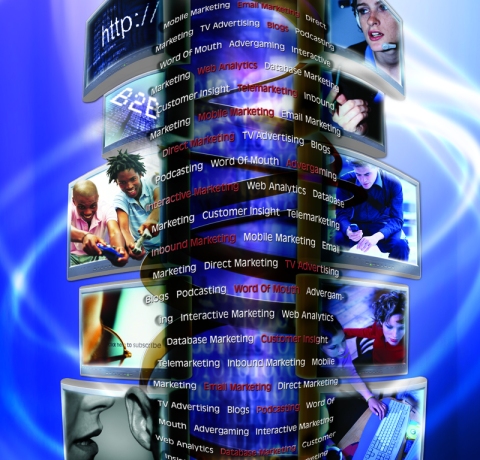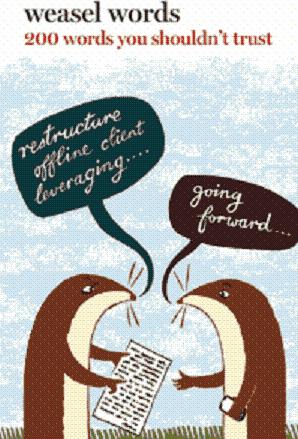Archive for the ‘Marketing’ Category

Do you see documentation as an important marketing asset? Are you putting your documentation to work as a sales tool? If not, you may be leaving money on the table. (Click image for source and credits.)
In these difficult economic times, companies need all the strategic marketing assets and sales tools they can muster. Did you know that documentation can help you achieve several important marketing goals? Are you getting the most out of your documentation?
One of the strongest arguments for investing the proper amount of time and money to produce effective documentation—the kind that shows you understand your market and your customers—is that you will create several powerful marketing tools in one package.
Want to become a member of the “smart marketing” winners circle? Here are some of the top reasons why great product documentation can set your products and company apart from the crowd …
One, repeat business. Successful documentation helps your company get repeat business in a very economical way. As you know, converting prospects to customers requires a lot of work and money. Once you’ve made the sale – what then? If your customers are satisfied with the product and how it meets their needs, they are likely to buy from you again. Documentation that helps customers use your products and get the most out of them promotes repeat business.
This is low-hanging fruit, so don’t overlook the marketing value of great documentation. As a bonus, if you publish your documentation online, you can build out those pages to encourage even more customer interaction with your company.
Two, analytics. How do you know your documentation meets your customers’ needs? Are you really communicating everything your customers need to know about the product?
Build out your online documentation package to encourage customer feedback, so you can find out what customers really think about your product documentation, and how they use it. Enable comments so users can tell you what they think is missing, what they like, and more. Automated analytics tools can tally and rank page and topic views, for example, and also list referrers, search terms used to find topics, which links were clicked, and so on.
Documentation analytics just might turn out to be your best friend in the marketplace, providing unvarnished, honest feedback and market intelligence. You can use that information to correct weaknesses, build on strengths, make better decisions about product development, gain a competitive advantage—and, ultimately, generate more business.
Three, interactive customer engagement. Who said documentation has to be just static pages lurking on a company website, waiting for customers to drop by? That’s all well and good, of course, but why stop there?
If you know your customers and how they use your product, you can slice and dice your documentation into many different configurations, and push it out onto many devices in various formats.
You can also make your documentation more interactive. Beyond pages of text, figures, drawings and photos, why not add podcasts, videos and automatically updating fields to the mix? Consider a video-game format for a training document, for example. Interactivity keeps customers connected and learning; that can pay off on the bottom line.
Hankering for more information on interactivity? Then you might also like to read Does Your Company Use Interactive Electronic Technical Manuals (IETM)?
Too many companies still view documentation from a limited perspective and, therefore, leave business on the table. You already know documentation is critical for making your products usable and useful. It’s time to take the next step and realize its potential as a powerful, strategic marketing asset.
Talkback: Does your company view documentation as a marketing asset? Do you use documentation to develop and retain your customer base? If you use documentation as a marketing tool, has it helped increase your customer base and revenues? What documentation formats work for you? Share your thoughts and experiences in comments—thanks! Elizabeth Lexleigh LexPower The Write Ideas


Books: Shopping versus Buying and the Closing of Borders
Posted by: lexpower on: July 26, 2011
The bookstore, such a wonderful place for browsing, perusing and discovering books you want to read and add to your personal library. Brick-and-mortar bookstores may be in trouble, due to declining sales, but think about this: What will happen to online and ebook sales when customers can no longer linger among stacks of books, thumbing through pages, flitting from book to book, each more inviting and enticing than the last? Are online sales driven in (perhaps large) part by our ability to walk into a real bookstore and sample the wares? (Click image for credit and source)
How many wonderful books have you stumbled upon while browsing in your favorite bookstore?
Books you decided you couldn’t live without.
Books you would never have found if you hadn’t been able to roam and wander and poke about among the overflowing tables, bins, stacks, bookcases and displays.
Books that attracted your attention because of their cover, or a chapter title, or a blurb on the inside jacket flap.
Look around the aisles and alcoves and cozy nooks of your local bookstore. The books stand there, waiting for you, promising knowledge, entertainment, connection, enlightenment, pleasure and joy. A book is a journey.
As you look around, how many people do you see reading? Moving from one volume to another? Pausing to lean over and pluck from the stacks a book that has caught their eye?
And how many people do you see actually buying a book?
A cozy corner in a bookstore invites reading. How many new books have you discovered in bookstores? Do you buy your books in the store, or online? Do you think it is fair to use bookstores only to shop, but then buy the books you want online? (Click image for credit and source)
The Borders bookstore chain declared bankruptcy recently and is now selling off its assets. In another few months it will shutter its stores for good.
Where once communities had easy access to books and a destination in which to meet and connect over new ideas and literary finds, there will be only empty shelves and dust.
Another outpost of civilization will have gone dark.
Do you buy print books and ebooks on the web? Do you shop for your books on the web as well, or do you go to a bookstore? (Click image for credit and source)
One reason Borders is closing its doors is that apparently more people were shoppers than buyers.
In the many reports I’ve read about Borders’ bankruptcy, one feature really jumped out at me: many of the staff and analysts interviewed said that for some time they had noticed a new pattern taking shape in the book-selling business: people shopped the bookstores, found what they wanted to buy, and then went online to make their purchases.
A number of shoppers who were interviewed admitted they were guilty of “mooching” – browsing at their bookstore, but then buying online.
Borders is one casualty of that trend.
Some trade analysts have speculated that online and ebook sales might actually decrease as a result of physical bookstores closing. Their thinking is that as more and more brick-and-mortar bookstores go out of business, people will have no place to browse and pick up a book to explore it.
Hmm, does this book appeal to me? Do I need to buy this and read it? Oh … maybe that one instead.
Many industry observers have opined that bookstores are the vehicle of book discovery, and that without thousands of actual books all around them and knowledgeable, professional staff ready to offer help and suggestions, most consumers will remain unaware of what is available in the literary marketplace.
What will that do to online and ebook sales of books?
Is there some way to develop a hybrid store that combines physical books, print-on-demand machines, and the on-site ability to buy ebooks (with the bookstore getting a commission on the sale price)?
Could those hybrid stores also offer multimedia viewing kiosks for titles that are only in ebook format?
As the publishing and book-selling business continues to transform, new models are emerging for getting books in many formats into the hands of readers.
We’re approaching a critical juncture, in my opinion, and this important topic deserves some serious thinking and entrepreneurial inventiveness.
What are your ideas for the bookstores of the future?
Now it’s your turn: What do you think of consumers who shop bookstores, but buy online? Do you think brick-and-mortar bookstores will eventually disappear? Do you support your local independent and chain bookstores by actually purchasing books there? How do you feel about the closing of Borders? Join the conversation by leaving a comment – thanks! Elizabeth Lexleigh LexPower The Write Ideas